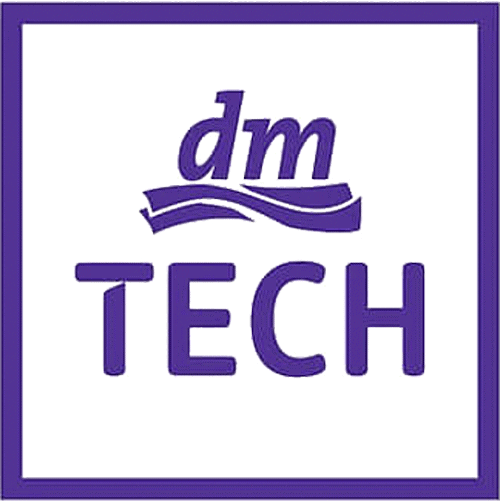Unfortunately, the degree of customized solutions in SAP EWM has increased significantly.
The consulting and project work in the SAP logistics industry has undergone a vast change in recent years due to the continuous change and adaptation of processes on the customer side.
More and more specific processes, which have emerged at our customers in response to the requirements of business departments and also the networked business partners, need to be mapped in the system. New interfaces and a deeper process integration – especially in the environment of warehouse automation – require a solution that, on the one hand, fits the requirements and, on the other hand, can also be embedded in the SAP logistics standard products such as SAP EWM.
What challenges do we encounter in our day-to-day project work?
Unfortunately, in the course of projects it often happens that the newly set up processes are already very customer or service provider specific at the time of introduction and are no longer implemented with SAP-standard.
What are the reasons for superfluous customer-specific extensions?
- Business and IT departments often lack the willingness to adapt processes due to lack of acceptance of the “new” and inadequate change management
- The same applies to disruptive approaches to optimization – it is difficult to “cut off old habits”.
- The choice of the right partner is also decisive for the quality and future security of the chosen solution: a lack of process and solution knowledge on the part of the consultants often leads to unnecessary extensions.
- If one looks at the above causes in the overall context of the project plan, it then becomes quickly apparent that time and thus cost pressure are often the drivers of supposedly “quick solutions”.
The result is all too often a brand-new system that is so heavily modified that it no longer complies with the SAP standard in many places and is therefore neither independently maintainable nor release-capable for the customer. Often the customer also becomes dependent on his service provider and experiences a rude awakening in the form of binding SLAs and service contracts with direct influence on ROI and follow-up costs.
How do you best meet special requirements?
As early as in the first workshops the following often becomes apparent: On the one hand, the customer notices that his current system has been adapted very specifically to his processes over the years and that this not only causes problems with extensions and the following regression tests, but also causes more and more complexity and costs. On the other hand, during the specification of the process in the new SAP system, an attempt is again made to recreate the same processes in the new system according to the customer’s individual needs. This requires specialized consultants with in-depth knowledge of the standard processes to show the customer alternatives for setting up the process in the standard system. In addition to knowledge of the system, experience from a wide range of industries also plays a role here. Thus, it is quite possible that a classic incoming goods process of a pharmaceutical customer can give a completely new impulse to the process of a machine manufacturer. This requires both the consultant’s ability to think abstractly and – even more importantly – the customer’s imagination and commitment with the corresponding pragmatism and willingness to rethink processes.
Special features in warehouse logistics
Many processes in logistics are of course dependent on physical conditions and the peripherals – but even in these areas, an open mindset should always be kept so that the system introduction can be used as an opportunity. The most important basis for a successful project is the trust of the customer. This trust also includes the ability to get involved with the new system and not to serve old wine in new bottles.
One thing is for certain: no major SAP EWM implementation will be able to map 100% in the standard. The specific processes and the very special business of the customer are too difficult. That is why it is even more important to map exactly those areas in the standard system where this is possible. Specific changes must be transparently presented to the customer and their effects must be clarified. At the same time, the alternative processes must always be outlined in the standard in order to sensitize the customer and provide him with a validated basis for decision-making.
Simultaneously, the current processes should always be put to the test in order to move away from the static route of the As-Is = To-Be – towards the mapping of the As-Is as the basis of the new, innovative and promising process. Here it is also important to consciously question the choice of service provider in advance, how the general project procedure looks like and to what extent service-specific plug-ins are used as alternatives to standard functions. Often by providers self-developed solutions are used, in order to reduce the expenditures – which however after the project often relativizes itself by subsequent costs with adjustments and maintenance.
The special situation in EWM with the introduction of SAP S/4HANA
Currently, this standard-oriented approach is more in demand than ever. Due to the change of the ERP systems to SAP S/4HANA many processes are changing there as well and want to be integrated into a SAP EWM logistics system. This is all the more difficult the less standard processes are implemented on the SAP EWM side. The standard integration, which often tipped the scales in favor of an SAP EWM system, can play out its advantages if the processes are set up with the appropriate integrative vision of an experienced consultant. This applies regardless of whether the logistics project or the SAP ERP transformation starts first.
In addition to our special expertise in the area of SAP EWM logistics, we also have the advantage of being able to deliver clean end-to-end processes for all modules from a single source in cooperation with our parent company cbs. This enables us, together with the customer, to set up future-proof and standard integrated processes, where the robustness, integration and maintainability of the future SAP system corresponds exactly to what the customer hopes for and for which he has placed his trust in us!
Do you need support in the analysis of your existing warehouse processes? Please feel free to contact us!
If you have any questions about this or other topics in the blog, please contact blog@leogistics.com.
Matthias Kraus
Consulting Director SAP EWM




